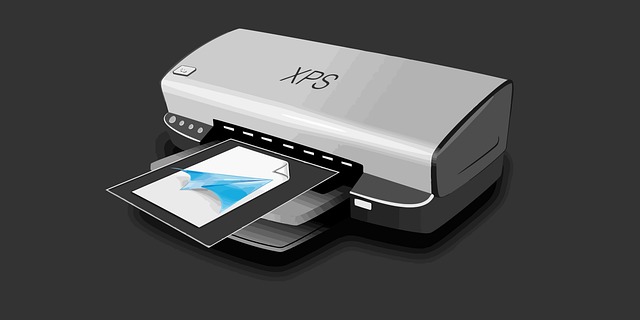In today's globalized business environment, precise translations of UK Intellectual Property (IP) documents are vital for protecting inventions, brands, and creators' rights worldwide. Accurate translations ensure the validity and enforceability of patents, trademarks, and copyrights across diverse jurisdictions, safeguarding against legal complications and financial risks. Choosing reputable translation services with specialized IP knowledge, proven experience, and professional certifications ensures linguistic accuracy and legal compliance, facilitating international protection and dispute resolution. Case studies demonstrate successful global expansions powered by UK Intellectual Property Documents translation services.
In today’s globalized market, certified translations of UK Intellectual Property (IP) documents are crucial for protecting and commercializing innovations internationally. This article delves into the significance of accurate translations in IP documentation, highlighting their role in facilitating international protection and legal compliance.
We explore various document types requiring professional translation services, key considerations when choosing a provider, and the certification process. Through case studies, we demonstrate successful implementations, emphasizing the benefits of certified translations for patents, trademarks, and copyrights in the UK IP law landscape.
- Understanding the Importance of Accurate Translations in Intellectual Property (IP) Documentation
- The Role of Certified Translators in UK IP Law
- Types of Documents Requiring Professional Translation Services
- Ensuring Legal Compliance Through Accurate Translations
- Key Considerations When Choosing a Translation Service for IP Documents
- The Process of Certifying Translations for Patents, Trademarks, and Copyrights
- Benefits of Using Certified Translations for International Protection
- Case Studies: Successful Implementation of Certified IP Document Translations
Understanding the Importance of Accurate Translations in Intellectual Property (IP) Documentation

In today’s global marketplace, where businesses operate across borders, accurate translations of UK Intellectual Property (IP) documents are more crucial than ever. Patents, trademarks, and copyrights—core elements of intellectual property protection—must be conveyed precisely in languages other than English to ensure their validity and enforceability internationally. Mistranslations can lead to legal complications, loss of exclusive rights, and even financial liabilities.
For instance, a trademark’s essence lies not only in its unique identifier but also in the feelings and associations it evokes across cultures. A mistranslation might fail to capture these nuances, diluting the mark’s strength and protection. Similarly, patent descriptions must be translated accurately to maintain the technical integrity of the innovation being protected. UK Intellectual Property Documents translation services, therefore, play a pivotal role in safeguarding the rights of inventors, businesses, and creators by ensuring their IP documentation is not only legally sound but also culturally sensitive and market-relevant across diverse jurisdictions.
The Role of Certified Translators in UK IP Law

In the UK, where intellectual property (IP) is a cornerstone of innovation and economic growth, certified translators play a pivotal role in facilitating legal protections for patents, trademarks, and copyrights. These professionals are essential when it comes to navigating the complexities of UK IP law, ensuring that foreign-language documents are accurately and legally translated. Certified translation services are crucial for submitting applications, preparing court cases, and maintaining compliance with regulatory requirements.
UK Intellectual Property Documents translation services must adhere to stringent standards to maintain the integrity and validity of legal documents. Certified translators are not just linguistically adept; they also possess a deep understanding of IP law and terminology. This dual expertise guarantees that translations are precise, culturally appropriate, and legally admissible in UK courts. Their work enables inventors, businesses, and creators from diverse linguistic backgrounds to safeguard their intellectual property effectively within the UK legal framework.
Types of Documents Requiring Professional Translation Services

When it comes to protecting and commercializing intellectual property in the UK, professional translation services play a pivotal role, especially when dealing with international applications. Patents, trademarks, and copyrights are integral parts of an inventor’s or creator’s portfolio, and ensuring their precise and accurate translation is paramount. These documents require specialized handling due to their legal and technical nature, making it imperative to seek out UK Intellectual Property Documents translation services that understand the nuances of each field.
From patent applications detailing innovative inventions to trademark registrations safeguarding unique brand identities, every word must be meticulously translated. Copyright notices for literary or artistic works also necessitate expert attention to preserve the rights of creators. Professional translators with expertise in these areas ensure not only linguistic accuracy but also adhere to the specific requirements and terminology used within UK intellectual property law.
Ensuring Legal Compliance Through Accurate Translations

When dealing with intellectual property (IP) documents, such as patents, trademarks, and copyrights, accuracy is paramount. In the UK, where IP laws are stringent, ensuring legal compliance involves more than just meeting formal requirements; it demands precise and reliable translations. Accurate translations of these documents not only facilitate international protection but also guarantee that the original intent and meaning are preserved across languages.
UK intellectual property document translation services play a crucial role in this process. Professional translators with expertise in IP law and terminology ensure that technical details, legal clauses, and creative expressions are correctly conveyed. This is essential to avoid misunderstandings, misinterpretations, or potential legal disputes that could arise from imprecise translations. By relying on reputable translation services, individuals and businesses can navigate the complexities of global IP protection with confidence, knowing their documents are handled by experts committed to upholding legal standards.
Key Considerations When Choosing a Translation Service for IP Documents

When selecting a translation service for UK Intellectual Property (IP) documents, several key considerations come into play to ensure accuracy and legal validity. The first step is to understand the specific requirements of your IP documents, such as patents, trademarks, or copyrights. Each type of document has its unique nuances and terminology that require specialised knowledge. Therefore, opt for translation services that boast expertise in this domain, ideally with previous experience handling similar IP cases.
Moreover, it’s crucial to assess the translator’s qualifications and credentials. Look for professional certifications like the Association for Translation and Interpretation (ATI) or Institute of Translation & Interpreting (ITI) accreditations. Additionally, check if they have a proven track record in providing high-quality translations, maintaining confidentiality, and adhering to deadlines. Reputable translation services will often offer samples of their work, allowing you to gauge their proficiency and style.
The Process of Certifying Translations for Patents, Trademarks, and Copyrights

The certification process for translating UK intellectual property (IP) documents, including patents, trademarks, and copyrights, is a crucial step to ensure legal validity and international recognition. Reputable translation services specializing in IP documentation employ experienced linguists who possess not only exceptional language skills but also a deep understanding of the specific terminology and legal nuances within each field.
This meticulous process involves several stages. First, a qualified translator reviews the original document to comprehend its technical and legal content accurately. They then proceed to translate the document into the desired language, maintaining clarity and precision. Post-translation, an editor checks for consistency, accuracy, and fluency, ensuring that the translated document meets all requirements. Finally, a certified professional signs off on the translation, confirming its authenticity and providing a seal of approval, which is essential for legal acceptance in various international jurisdictions.
Benefits of Using Certified Translations for International Protection

In today’s global market, protecting intellectual property (IP) internationally is more crucial than ever for businesses and inventors. Certified translations play a pivotal role in this process, especially when it comes to UK intellectual property documents. By engaging professional translation services, companies can ensure their patents, trademarks, and copyrights are accurately represented across borders. This is essential for gaining international recognition and protection, as legal frameworks and language nuances vary significantly worldwide.
One of the key benefits of certified translations is their legal validity. These translations carry official sanction, making them admissible as evidence in foreign courts. This enhances the enforcement power of IP rights, providing a robust foundation for international dispute resolution. Moreover, professional translators with expertise in intellectual property terminology can capture the precise meaning and intent of the original documents, ensuring compliance with local regulations while maintaining the integrity of the content.
Case Studies: Successful Implementation of Certified IP Document Translations

In recent years, the demand for certified translations of UK intellectual property (IP) documents has surged due to globalization and cross-border business expansion. Case studies highlight successful implementations where accurate and legally acceptable translations have facilitated international protection and exploitation of patents, trademarks, and copyrights. For instance, a multinational pharmaceutical company faced the challenge of filing patent applications in multiple jurisdictions simultaneously. By leveraging specialized UK Intellectual Property Documents translation services, they ensured consistent terminology and compliance with local requirements, expediting the overall application process.
Another notable example involves a tech startup seeking to expand its trademark portfolio globally. Accurate translations not only protected their brand identity across borders but also enabled strategic market entry. These success stories underscore the importance of professional translation services in navigating the complexities of international IP protection. By engaging reputable providers, businesses can streamline processes, mitigate risks, and harness the full potential of their intellectual assets on a global scale.
When it comes to safeguarding intellectual property rights internationally, certified translations play a pivotal role in ensuring the legal validity and protection of patents, trademarks, and copyrights. By leveraging professional translation services specialized in UK Intellectual Property (IP) law, businesses can navigate complex international landscapes with confidence. Accurate and certified documentation not only facilitates smoother global operations but also acts as a robust shield against potential legal disputes, making it an indispensable asset for any IP strategy.



